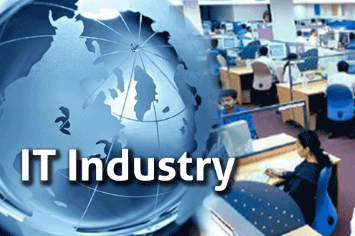Exploring the Latest Tech Innovations: Shaping the Future
Introduction
The world of technology is constantly evolving, with new innovations emerging at an astonishing pace. From artificial intelligence that can mimic human creativity to revolutionary advancements in medicine, these breakthroughs are poised to reshape our lives in profound ways. This article will explore some of the most exciting and impactful technological innovations shaping the future.
1. Artificial Intelligence (AI) and Machine Learning
- Beyond the Hype: AI is no longer just a futuristic concept; it's rapidly becoming an integral part of our daily lives. Machine learning algorithms are powering everything from personalized recommendations on streaming services to self-driving cars and medical diagnoses.
- Deep Learning Revolution: Deep learning, a subset of machine learning, has made significant strides in recent years, enabling machines to process and understand complex information like images, speech, and natural language with unprecedented accuracy.
- AI in Everyday Life: We encounter AI in various forms every day, from voice assistants like Siri and Alexa to spam filters in our email inboxes.
- The Future of AI: The future of AI holds immense promise, with advancements in areas like:
- Natural Language Processing (NLP): Enabling more human-like conversations with machines and revolutionizing customer service, translation, and content creation.
- Computer Vision: Powering advancements in self-driving cars, medical imaging, and robotics.
- AI for Social Good: Addressing global challenges like climate change, poverty, and disease through AI-powered solutions.
2. The Internet of Things (IoT) and Smart Everything
- Connecting the World: The IoT is connecting an ever-growing number of devices to the internet, from smart homes and wearables to industrial equipment and smart cities. This interconnectedness allows for unprecedented data collection and analysis.
- Smart Homes and Cities: Imagine a home where lights automatically adjust to your preferences, appliances anticipate your needs, and security systems are always vigilant. Smart cities are also emerging, with interconnected infrastructure that optimizes traffic flow, manages energy consumption, and improves public safety.
- Industrial IoT: The IoT is revolutionizing industries like manufacturing, agriculture, and logistics, enabling greater efficiency, productivity, and data-driven decision-making.
- Challenges and Considerations: The rapid growth of the IoT also presents challenges, including data privacy and security concerns, the potential for device vulnerabilities, and the need for robust cybersecurity measures.
3. Biotechnology: Revolutionizing Healthcare and Beyond
- Gene Editing and Personalized Medicine: Advances in gene editing technologies like CRISPR-Cas9 are revolutionizing medicine, offering the potential to treat genetic diseases, develop new therapies, and improve agricultural productivity.
- Biotechnology in Agriculture: Biotechnology is improving crop yields, increasing disease resistance, and developing more sustainable agricultural practices.
- Bio-inspired Materials: Researchers are developing new materials inspired by nature, such as self-healing materials and biocompatible implants, with applications in various fields including medicine, engineering, and environmental science.
4. Quantum Computing: Unleashing Unprecedented Power
- Beyond Classical Limits: Quantum computing leverages the principles of quantum mechanics to perform calculations that are impossible for even the most powerful classical computers.
- Potential Applications: Quantum computing has the potential to revolutionize fields like drug discovery, materials science, financial modeling, and cryptography.
- Early Stages of Development: While still in its early stages, quantum computing is rapidly advancing, with researchers making significant progress in building and improving quantum computers.
5. Space Exploration: Reaching for the Stars
- Space Tourism and Commercial Spaceflight: Space tourism is becoming a reality, with private companies developing spacecraft for commercial space travel.
- New Frontiers in Space Exploration: Missions to Mars, the exploration of other planets and celestial bodies, and the search for extraterrestrial life continue to push the boundaries of human knowledge and innovation.
- Space-Based Technologies: Space-based technologies, such as satellite communication and Earth observation, are playing an increasingly critical role in our daily lives.
6. The Metaverse: A New Frontier for Human Experience
- Blending the Physical and Digital Worlds: The metaverse is an emerging concept that blends virtual and physical realities, creating immersive experiences that go beyond traditional online interactions.
- Virtual Reality (VR) and Augmented Reality (AR): VR and AR technologies are laying the foundation for the metaverse, offering immersive experiences that can revolutionize entertainment, education, and social interaction.
- The Potential and Challenges: The metaverse presents both exciting opportunities and significant challenges, including ethical considerations, privacy concerns, and the potential for social isolation.
7. The Importance of Ethical Considerations
- Responsible Innovation: As technology advances, it is crucial to prioritize ethical considerations, ensuring that these innovations are developed and used responsibly.
- Addressing Bias and Inequality: AI algorithms can reflect and amplify existing biases in society. It is essential to develop and deploy AI systems that are fair, equitable, and inclusive.
- Protecting Human Values: As technology increasingly integrates into our lives, it is important to uphold human values such as privacy, autonomy, and dignity.
Conclusion
The pace of technological innovation is accelerating, and the future holds both immense promise and significant challenges. By embracing responsible innovation, investing in education and training, and addressing the ethical implications of emerging technologies, we can shape a future where technology serves humanity and creates a more just and equitable world for all.
Disclaimer: The information provided in this article is for general informational purposes only and should not be construed







